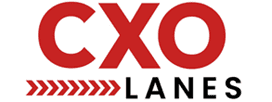Johan Wibergh, the former Chief Technology Officer (CTO) of Vodafone, has embarked on a new venture with AST SpaceMobile, a direct-to-mobile satellite startup. Wibergh, who left Vodafone at the end of 2022, will now serve on SpaceMobile’s Board of Directors and as Chairman of the newly established Network Planning and Spectrum Committee. This committee is responsible for overseeing network features and capacity planning for the company’s satellite constellation. Expressing his enthusiasm for this role, Wibergh remarked on LinkedIn, “As a kid, I wanted to be an astronaut, which of course never happened, but now I get a chance to be part of a company that is sending up satellites and will forever change mobile communications.”
This new role also reunites Wibergh with Abel Avellan, the founder, Chairman, and CEO of SpaceMobile. During his tenure at Vodafone, Wibergh played a key role in Vodafone’s decision to invest in AST SpaceMobile, known then as Avellan Space Technology & Science. Vodafone remains a significant backer with a 5.2% stake and an exclusive commercial agreement in 24 countries. Avellan praised Wibergh’s appointment, highlighting his extensive experience in building and operating large-scale networks and his track record of driving innovation and growth as invaluable assets for SpaceMobile as it moves towards the commercialization of its space-based cellular broadband network.
Since leaving Vodafone, Wibergh has pursued a portfolio career, holding seven board positions. He concluded his role on the Vantage Towers board in 2022 and joined Canadian telecom operator Bell in November 2023. His current board memberships include Arrcus, Avanci, Cohere Technologies, Marconi, and Trimble.
Wibergh’s expertise is crucial as SpaceMobile navigates early challenges, including delays in launching its low-Earth orbit (LEO) satellite constellation. The first-generation “Block 1” BlueBird satellites, originally slated for launch in the first quarter of 2024, are now expected to reach the launch site between July and August 2024. Despite facing a class action lawsuit alleging management misled investors, SpaceMobile has secured significant funding and strategic partnerships. In January, the company raised approximately $300 million through investments from AT&T, Google, and Vodafone, alongside new convertible notes. Additionally, SpaceMobile signed a new contract with a U.S. government supplier in February and concluded commercial agreements with AT&T and Verizon in May. The partnership with AT&T, extending until 2030, represents an upgrade from a previous Memorandum of Understanding, while Verizon has committed $100 million to support SpaceMobile’s initiatives.
As SpaceMobile progresses, it faces competition from SpaceX-owned Starlink, which is advancing rapidly with its direct-to-mobile capabilities. SpaceX launched its first Starlink satellites with direct-to-mobile capabilities in January and now has over 50 such satellites in orbit. According to a recent filing with the Federal Communications Commission, SpaceX plans to commercially launch its direct-to-mobile service with T-Mobile in the autumn. With the summer launch of SpaceMobile’s constellation approaching, Wibergh’s leadership in network planning and spectrum management is expected to play a pivotal role in overcoming initial hurdles and achieving the company’s ambitious goals.
